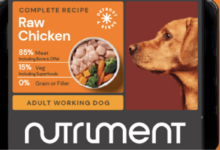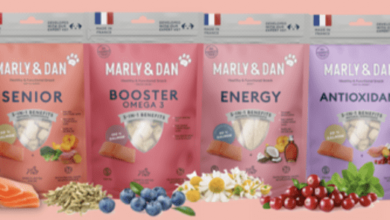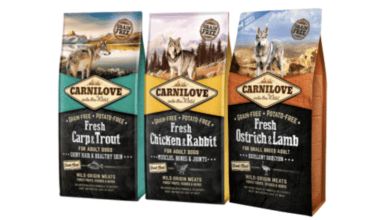M&A trends in pet care

Petcare is one of the fastest growing areas of the consumer sector. Globally it’s a £100bn market, with the UK petcare sector now valued at close to £6bn. Market growth is driven by sector-specific factors as well as reflecting broader consumer trends.
The growing fashion to treat pets as family members means they are now treated with premium, healthy and ‘free-from’ foods, lavish grooming products, and expensive care services, such as full health insurance plans.
Developments in technology have seen the rise of app-based petcare services while advances in veterinary medicine in areas such as pet oncology have boosted the growth and revenues of veterinary practices.
Against such a backdrop it is no surprise that M&A features strongly, with big names in the industry making strategic acquisitions, private equity houses with plenty of dry powder targeting the sector, and consolidation being a key theme in the mid-market as smaller players look to build scale to compete more effectively.
Pets as part of the family
The changing attitudes of humans towards their pets has been a fundamental shift, transforming the sector.
Research increasingly shows that most pet owners now view their pets as members of their family: a survey by Kelton Research, a US based brand consultancy, has found that 81% of cat or dog owners consider their pets to be true family members, while analysis by market research firm Mintel has shown that one in five cat or dog owners would cut back on spending on their own luxuries before reducing the amount they spend on their pets.
This has not only increased demand for staple products such as pet food, but has led to a wider array of premium demands, including luxury grooming products such as Aesop’s Animal Wash priced at £25 a bottle, or pet insurance plans which now average nearly £350 per year.
Popularity of premium
This cultural shift, leading to the humanisation of pets, has significantly increased the demand for high-quality, premium pet food, with the global premium dog and cat food sector experiencing 25% value growth over the last five years.
According to a recent consumer report by consumer research firm Nielsen’s, pet owners are becoming far less concerned about the cost of pet food and more interested in the quality, in many ways mirroring the way they look at their own food spending habits.
Consequently, the leading global brands are losing market share to smaller, more nimble innovators such as Lily’s Kitchen, which has been recording annual double digit growth rates.
Health and wellbeing
The continuing trend for holistic health and wellbeing that has swept the consumer sector has, arguably, been even more influential within the petcare industry.
A new survey by food tech developer BENEO has shown that over half of pet owners in Germany, the UK, the US, China, and Brazil are considerably more likely to buy a product that says ‘made with natural ingredients’ on the label.
There have also been significant changes in pet healthcare, with alternative therapies such as cannabidiol and hemp based products rising in popularity, with 74% of those who use such alternative therapies them using them on their pets as well.
Rise of tech-based and e commerce offerings
While all pet owners purchase pet food and the majority will buy premium treats and accessories, only a minority are willing to pay for services such as dog walking and pet fitness advice. This is where the rise of tech-based services is likely to be most evident.
App-based services have emerged, offering services such as dog walking and pet sitting, with apps such as Borrow my Doggy connecting dog owners in the UK with trusted local dog sitters and walkers. Canine fitness services such as Whistle (which was acquired by Mars Petcare in 2016) and venture-backed FitBark offer ‘Fitbit’ style fitness trackers for pets.
In synch with the broader consumer sector, the pet sector has seen the rise of direct to consumer operators, using influencers and social media channels to drive sales, such as freshly cooked subscription services Butternut Box and Pet Plate, and raw food ‘the wolf diet’ specialists Bella & Duke.
A focus for private equity
It is no surprise that private equity has sought to be part of this booming and dynamic sector, attracted by the opportunities to scale and the perceived resilience to a downturn, with one private equity house recently describing petcare as “the sector which keeps on giving”.
We estimate that over 20 pet sector businesses are currently in private equity hands in the UK, with L Catterton alone having made seven pet sector investments around the world.
The appetite of private equity for the pet sector is illustrated by two private equity transactions we advised on recently: the sale of Jollyes Retail Group (the UK’s second largest pet superstore retailer) to Kester Capital and the sale of a majority stake in premium pet snack maker Gimborn to China-based Hillhouse Capital.
M&A activity increasing
Against such a strong growth backdrop, M&A activity has been understandably brisk, with deal flow driven by a range of factors. These include strategic deal making by large corporates, more niche acquisitions, and financial sponsors from private equity looking to buy into the sector.
Good examples of strategic moves by larger corporates have been the acquisition of smaller, innovative businesses in different jurisdictions to both establish a foothold in a new territory, as well as enter new-subsectors and expand their offering. A notable recent transaction is industry leader Mars Petcare’s strategic acquisition of Stockholm based AniCura and Solihull based Linnaeus Group in November 2018, giving the former an entry into the European and UK veterinary care sector.
Niche acquisitions have been driven by companies trying to cater for consumer’s rapidly increasing demand for tailored offerings, especially via digital retail. This was illustrated by Nestle Purina taking a majority stake in bespoke ecommerce pet nutrition brand Tails.com.
For petcare businesses in the mid-market seeking the scale to remain competitive, M&A is an attractive option – a good example being our role advising The Dechado Group, owner of Pets Corner, the UK’s leading premium pet retailer, on acquisition finance to fund its purchase of smaller rival PamPurred Pets.
There is no question that we will see many more M&A deals in the sector. Given the current robust valuations and continuing dynamism of the sector, the market is ripe for further merger and acquisition activity, which could see a very different petcare sector emerge in the years to come.













